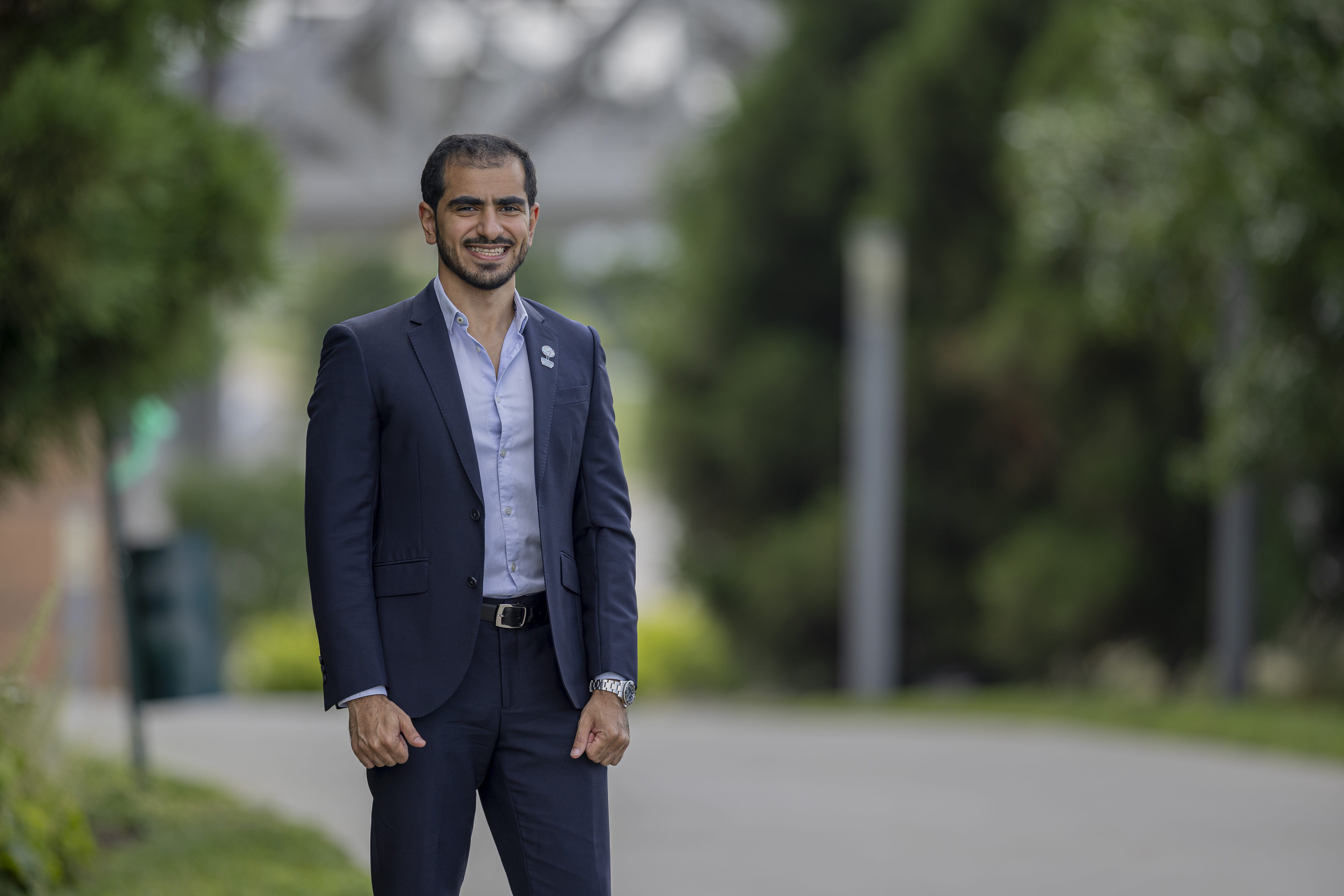Aviation decarbonization cleared for takeoff

Abdurahman Alsulaiman, Researcher at the Oxford Institute for Energy Studies (OIES).
As air passenger numbers grow, the aviation sector is exploring new ways to reduce its emissions.
Although aviation accounts for a comparatively small proportion of global emissions, it remains one of the most difficult sectors to decarbonize, said researcher Abdurahman Alsulaiman, who has been studying the role of hydrogen in the decarbonization of the sector at the Oxford Institute for Energy Studies (OIES), as part of the OIES-Aramco Fellowship.
The Fellowship provides the opportunity to build an independent research career and covers all areas of the energy sector, including international relations between producers and consumers of energy; the economic development of producing nations and the geo-political aspects of all these issues.
“There is this urgency to decarbonize aviation,” said Abdurahman, who is also a PhD candidate at the Swiss Federal Institute of Technology in Lausanne (EPFL), Switzerland. “But the potential solutions are not as simple for example, as replacing the internal combustion engine with a battery pack and a bunch of motors.”
Several potential hydrogen pathways for aircraft have been studied, from direct combustion of liquified or gaseous hydrogen to hydrogen fuel cells – but they require significant changes in the way planes, and aircraft in general, are built, explained Abdurahman.
As a result, there is now considerable focus on both Sustainable Aviation Fuels (SAFs) and Lower Carbon Aviation Fuels (LCAFs) and their potentially important role in reducing aviation Greenhouse Gas (GHG) emissions without requiring major changes to the way aircraft are operated today.
According to the International Civil Aviation Organization (ICAO), SAFs are derived from renewable or waste sources, while LCAFs are fossil-based fuels meeting strict criteria, including a 10 percent reduction in lifecycle emissions compared to the conventional aviation baseline.
LCAF has the potential to address the challenge of scaling up the production and use of sustainable fuels across the sector.
“LCAF inherently possesses a complementary nature. It serves as an immediate transitional fuel, as it primarily focuses on building on the existing fuel supply value chain, while also facilitating the growth of SAF in existing refineries.
“This transition may require minimal changes in the broader commercial aviation landscape. LCAF could indeed serve as a vital component in the journey toward a more sustainable and environmentally responsible aviation industry,” said Abdurahman.
“Long-term projections suggest that sustainable aviation fuels, including hydrogen-based options, could significantly contribute to reducing aviation’s environmental impact,” he added.
With numerous emerging fuels and technologies under development, it is an exciting time for the global aviation industry as it navigates towards a lower carbon future.
While significant progress has been made, Abdurahman believes a substantial journey still lies ahead as the industry seeks to develop new fuels at scale while keeping costs down.
The OIES-Aramco Fellowship encompasses all areas of energy research and targets early career researchers with the potential for significant advancement in their field. It is open to applications from masters’ and doctoral students, as well as postdoctoral researchers who have obtained their PhD in the last five years.



